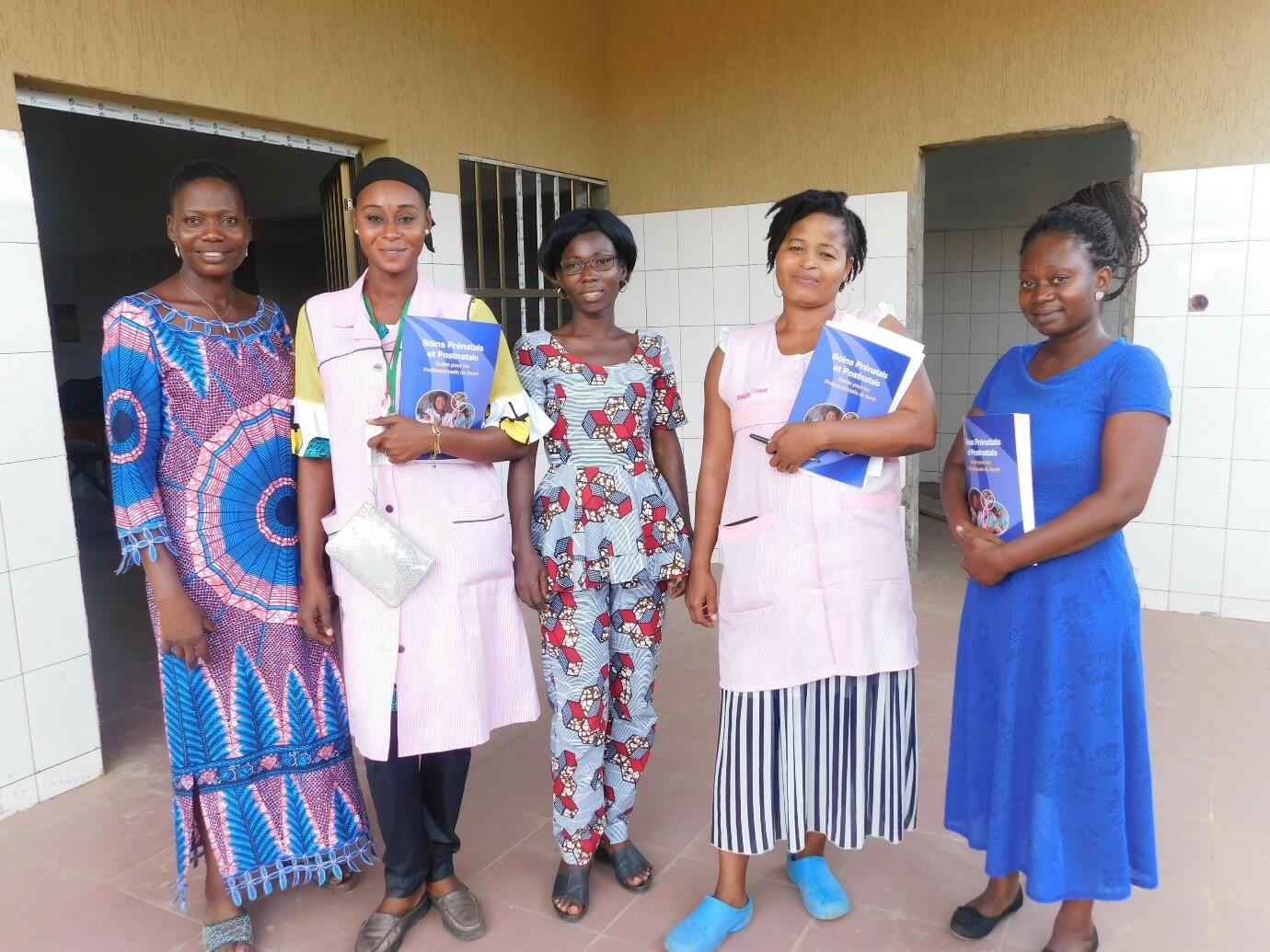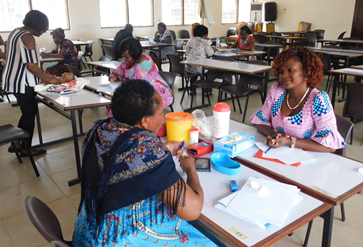
LSTM’s Global Fund and Allied Programmes Unit (GFAPU) have successfully completed the Quality Improvement of Integrated HIV, TB and Malaria Services in Antenatal and Postnatal Care (ANC-PNC) Facilities in Togo which began in 2019.
Pregnant women and newborns represent a high-risk group for many conditions including HIV, TB and malaria. As a consequence, the team members, with expertise in maternal, newborn and child health, collaborated with partners and governments in Togo to design, deliver and implement a research programme for improving antenatal and postnatal care and contributing to saving the lives of mothers and their babies.
Working in partnership with healthcare providers, strong support from stakeholders across all levels and solid international teamwork, the team were able to continue their work amidst the public health measures and hurdles linked to the COVID-19 pandemic. The presence of master trainers in every region of intervention, together with remote support of GFAPU staff members and national partners, strict adherence to safety protocols allowed the in-service workshops to be delivered despite the challenges posed by the pandemic.
The key achievements of the programme included the training of 505 healthcare providers in ANC-PNC essential and integrated care, 60 key staff trained in quality improvement (QI), 18 multidisciplinary QI committees set up and actively operating, and 99 standard-based audit cycles conducted in 18 healthcare facilities. In addition, essential key equipment was distributed across target healthcare facilities.

Celestine, midwife and member of the QI team at Atakpame Regional Hospital, said: "The audit very much helped us to understand how to better our practices, for example we now have a dedicated person cleaning the baby's umbilical cord and we have chlorhexidine in our kit. We now have a tool to evidence what is working well, and to advocate for improvement in supplies and practices. It also taught us a lot about the relationship between carer and patient. I am very happy to have been a part of the programme.” Dr Florence Mgawadere, Technical Officer at GFAPU, continued: “the success of the programme was due to a combination of dedicated partners and multidisciplinary frontline health care providers who are very enthusiastic and keen to apply the skills they had learnt, to enhance the quality of care in their respective facilities.”
The programme involved 62 healthcare facilities from Grand Lomé, Plateaux and Savanes regions, working in close partnership with University of Lomé (UL) and with support of the Global Fund to fight AIDS, Tuberculosis and Malaria and the Programme Management Unit (UGP) of the Ministère de la Santé et de l'Hygiène Publique (MSHP).
Looking to the future, Dr Alexandre Quach, Country Program Manager for francophone African countries at GFAPU continued: “We are looking forward to the next step which will include the scale-up of quality improvement and ANC-PNC trainings, and working on the sustainability of achievements through supervision system strengthening. Building on the strong support of the MSHP and UL, the programme will aim to continue the fight against maternal and neonatal mortality and morbidity and save precious lives in Togo.”
The work of GFAPU is dedicated to improving the health of mothers and babies and have aimed to improve the availability and quality of integrated, people-centred health services.